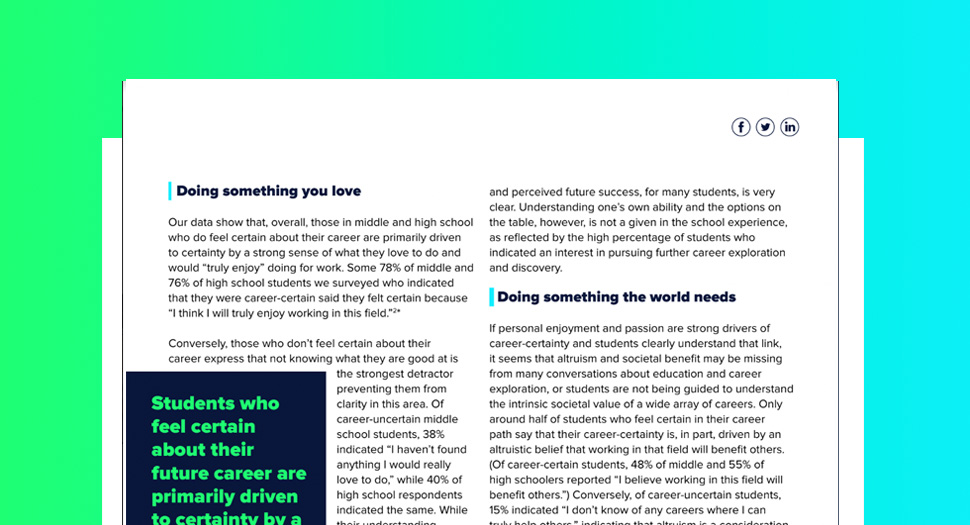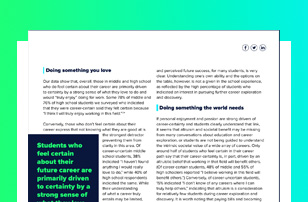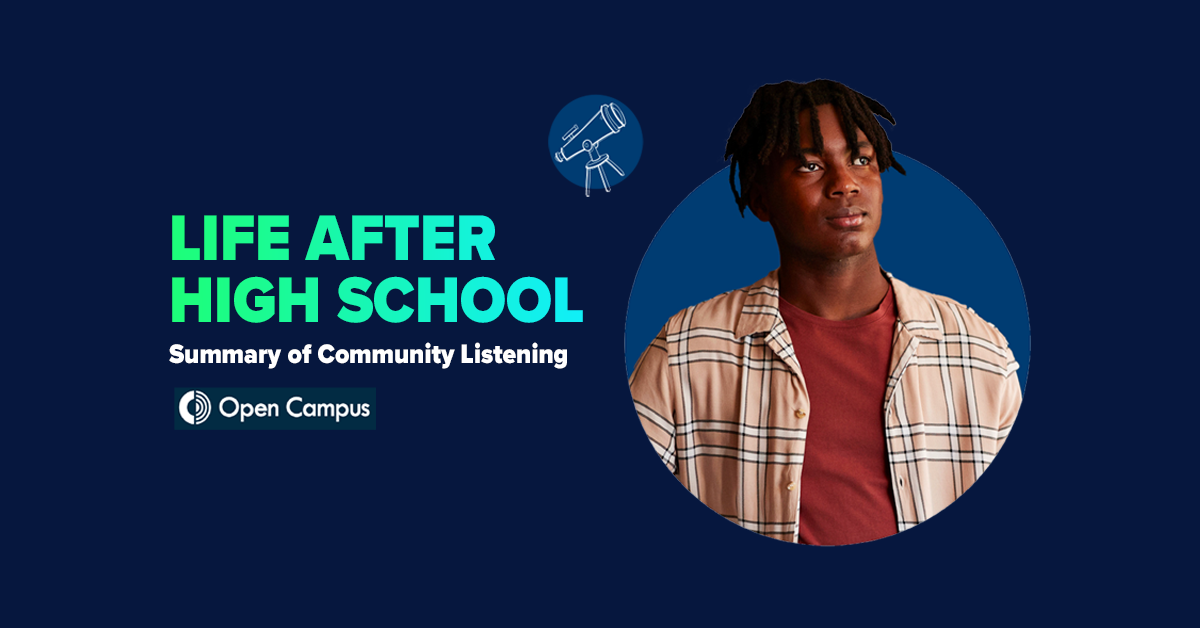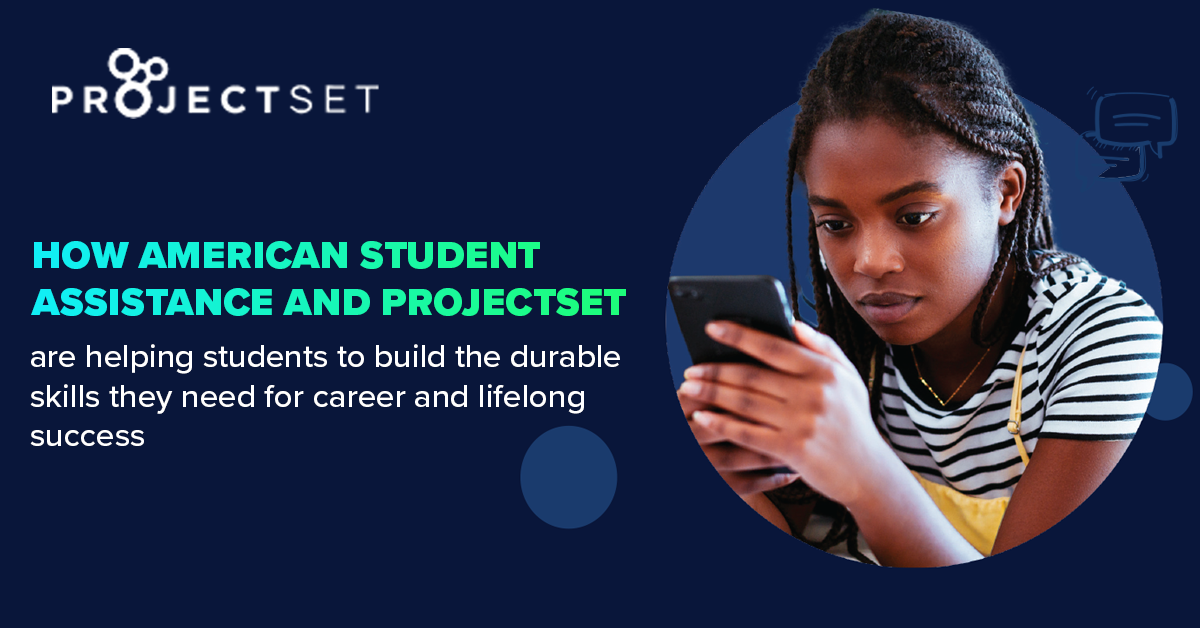How the Japanese framework of Ikigai can help guide American youth toward more targeted education and career pathways.
As a generation of American youth graduates into growing unknowns and uncertainty during and immediately following the COVID-19 pandemic, it is increasingly important that their awareness of self and of purpose be clear. For too many young people and soon-to-be graduates in America, the process of planning for the future, even at the best of times, involves shots in the dark and frequently incorrect assumptions about the world beyond high school. It also implies a level of self-awareness and understanding of their own skills and abilities that we know simply isn’t true for most teenagers.
For many students, “What do you want to be?” is a question that causes much angst and indecision. Some students make up an answer to please the adults in their life. Others make loose associations between what they like doing or what might earn them the most, and a career path that may or may not work for them. Still others may answer the question based solely on their limited exposure to known work fields. And some have no answer at all and see no point in endeavoring to find one. Conversations about the future with American students all too often involve this oversimplified and misleading question which gives the impression a person simply ends up being something.
What if the emphasis shifted from “What do you want to be?” to questions like “What are you passionate about?” “What do you want to give to society?” and “What are you capable of?” There is, in fact, a guiding framework that can serve as a roadmap to help young people think about and articulate a plan, in terms of what they want, what they can do, and what society needs.




